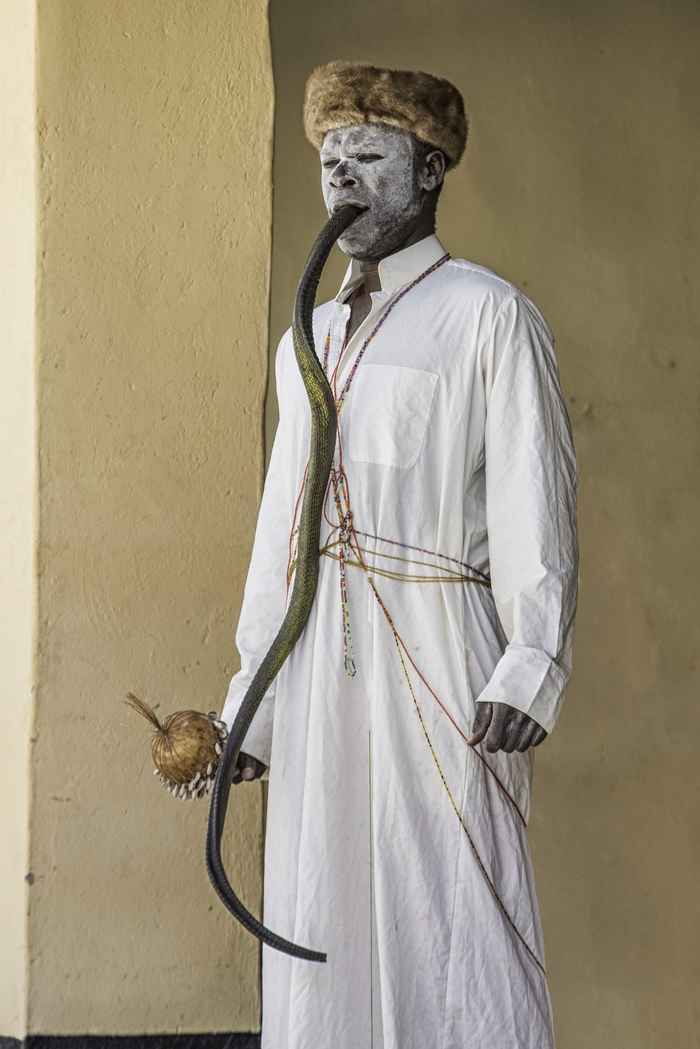Current Issues with Johanneke Kroesbergen
- Date
- 16 October 2023
- Time
- 15:00 -16:30
- Location
- Oudemanhuispoort
- Room
- A0.08

Introduction
Contrary to Western expectations, witchcraft is still a reality for many Africans. Academic debate about witchcraft, which has fascinated anthropologists since the inception of the discipline, also continues. Three contemporary scholarly approaches are: searching for a connection between witchcraft and modernity, a focus on human rights, and approaches inspired by the call to take local realities seriously. In this lecture I draw on my own experiences in Zambia to sketch a portrait of witchcraft in contemporary Africa and I reflect on the usefulness of the academic perspectives for the local context. In doing so, I raise questions about religious studies in a postcolonial era.
Contents
Witchcraft in the history of African studies
The study of witchcraft is one of the mainstays of anthropology in Africa. Classical approaches have attempted to explain the notion of witchcraft by focusing on two questions: Why do people believe in witchcraft? and Why do people accuse each other of being involved in witchcraft? These two sides of the equation have been illuminated by different generations of anthropologists. After a slump in the attention to witchcraft in the early postcolonial era, after the 1970s, when it was expected that witchcraft would disappear under the influence of the modernization of African societies, the topic returned to the academic agenda in the 1990s and has not disappeared since. The article presents an overview of contemporary scholarly perspectives on witchcraft in Africa.
Witchcraft in contemporary Africa
For many Africans, witchcraft and similar forms of supernatural harm are a daily reality. Witches are feared and accusations of witchcraft may lead to deadly violence. At the same time, there is a fascination with the workings of the supernatural or spiritual world that makes rumors about witchcraft and related phenomena common topics of conversation. This preoccupation with witchcraft is present in rural as well as urban areas and among the poor with little education as well as those who are educated, well off, and in positions of power. During the time I spent in Africa, I heard many stories about witchcraft. In the first part of the lecture, I will draw on these experiences to give an overview of witchcraft beliefs in Africa and especially in Zambia.
Studying and teaching witchcraft in Africa
When I moved to Zambia in 2011, the most important perspective on witchcraft was the so-called ‘modernity of witchcraft paradigm’, developed by scholars such as Peter Geschiere and Jean and John Comaroff. According to this perspective, it makes sense that the modernization of African societies did not lead to the disappearance of witchcraft because, instead, there is an intimate link between witchcraft and modernity. Narratives about witchcraft express anxieties related to modernity in novel and fruitful ways. I tried to apply this perspective in my own research and in my classes on witchcraft, I introduced this perspective to my students. It became soon clear to me, however, that the witchcraft and modernity perspective was difficult to explain in the local reality of my students. In the second part of the lecture, I will reflect on the questions about emic and etic viewpoints and taking informants seriously that this experience raised.